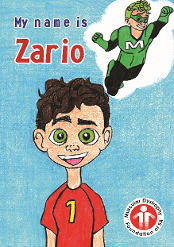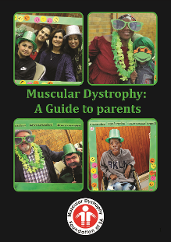Even though MD is destructive physically, psychological and emotional issues related to physical disability can cause serious challenges. Emotional wellbeing is incredibly important to the Foundation and therefore we provide support services to all our affected members.
Individual therapy involves a person meeting with a social worker to talk about their concerns and challenges.
Typical services include:
- Addressing negative feelings towards being disabled.
- Identifying special needs.
- Assistance in locating resources in the community that may help, inclusive of special medical equipment and education.
- Assist with the application for these services.
- Linking other families/individuals with the same disability.
- Referral to other specialist services.
- Provide life skills programmes, such as parenting, anger management, etc.
Family Therapy is a type of therapy that involves members of a family. Family members may not all be present, but the social worker views the individuals as members of a family and explores issues within the context of the family. Therapy can focus on things like parenting, solving family conflicts, or communicating better.
Doctors diagnose some disabilities at birth or even before birth while others are discovered later. It is “normal” for parents and family members to feel all sorts of emotions when a child is diagnosed with a disability. They may feel sad, angry, confused, ashamed, or scared. They may even go through a grieving process (as people do when someone close to them dies). Many families are the key support for persons with disabilities. Family support services are vital for these families and require services from social workers as this can be a very challenging role and may leave them feeling physically and mentally drained.
Group therapy involves several clients meeting together to explore similar issues. When working with disabled persons in groups, social workers may address issues such as:
- Behavior problems
- Emotional issues
- Hygiene
- Anger management
- Coping skills
- Grief
- Providing support
- Assistance and explanations or demonstrations of assistive devices
- Promoting independence and a way to contribute to their community
- Supporting people to access employment and leisure opportunities
Polivagal Theory
Polyvagal theory is a useful model that helps us understand how we are wired to protect AND connect, and to get to know our nervous systems and consciously self-regulate states of threat and anxiety back to states of connection, calm and ease. The theory was developed by Stephen Porgess. It hypothesizes that the autonomic nervous system (ANS) is organised hierarchically into three layers. The more primitive, reptilian parts of the ANS are organised solely along the principles of threat and safety and are constantly scanning the environment for cues of safety and cues of danger. The neurobiological perception of danger or safety, which does not involve the thinking part of the brain, has been termed ‘neuroception’. These cues are picked up at an unconscious level and then interpreted by the brain which creates stories to make sense of them. These ‘fear stories’ then feel very real and true. Frequently they are stories about future events, ie. worries; or are based on past traumatic events. Our brains compare incoming neuroceptions of safety/danger with past experience and may activate defences in our personality based on ‘faulty neuroceptions’. There are two aspects of this primitive structure – the sympathetic nervous system which mobilises our response to the threat or danger with our fight/flight response and the dorsal vagus system which is characterised by immobilisation (There is an error in the podcast where I referred to it as the dorsal ventral system). In the sympathetic nervous system, you might become aware of physiological changes such as an increase in heart rate, breathing, an increase in blood pressure, and you may even start sweating. Psychologically there are subjective experiences of fear and anxiety. If however we are unable to react because we are somehow trapped or disabled, or if the threat is ongoing and there is an absence of external support or inner resources, the nervous system then shuts down and the response is immobilisation or what we call ‘freeze’. Physiologically, you might notice that you have stopped breathing or you are holding your breath, you feel cold and numb, your body is very still, and you might be unable to think clearly. Psychologically and socially, this state may be characterised by disconnection /withdrawal from others, feelings of depression, loss of hope, and helplessness. We might feel like we will never be happy again. In shutting out fear, we also disconnect from our loved ones and the activities in life that give us fulfilment and joy. We might feel helpless to get ourselves out of this experience because this state paradoxically makes us feel safe and it often takes active will power to shift out of it. The third aspect to our nervous system is the system that enables us to connect with others. This part is considered in evolutionary terms to be more evolved, our mammalian brain. It is referred to as the ventral vagus system and is characterised by a response from our parasympathetic nervous system. The vagus nerves in the parasympathetic nervous system are thought to act as a vagal break on our reptilian brain. When we are functioning from our mammalian brain, one of safety and connection, our perspective changes. We see ourselves and our problems differently, we have access to greater diversity and complexity of brain functions, and we can therefore problem solve with more creativity and have many more solutions and options to respond available to us. Paradoxically, for most human situations, this actually keeps us safe rather than the limited options offered by the reptilian brain and its fight/flight/freeze response. Connection with others offers opportunity for what is termed ‘co-regulation’. In the same way that an infant is immediately calm in the arms of his/her mother, our nervous system feels immediately calm when we feel connected with others. Methods of stimulating the vagus nerve and bringing ourselves out of a state of flight/flight/freeze into a feeling of connection are: - -Music -Chanting and singing -Breathing (longer out than in breath, breathing deeply into the belly) -Connecting with others -Physical touch -Eye movements – looking out the corner of our eyes -Animals are good for co-regulation HeartMath exercises (www.HeartMath.org).
Please click on the button below to watch an introductory video.

